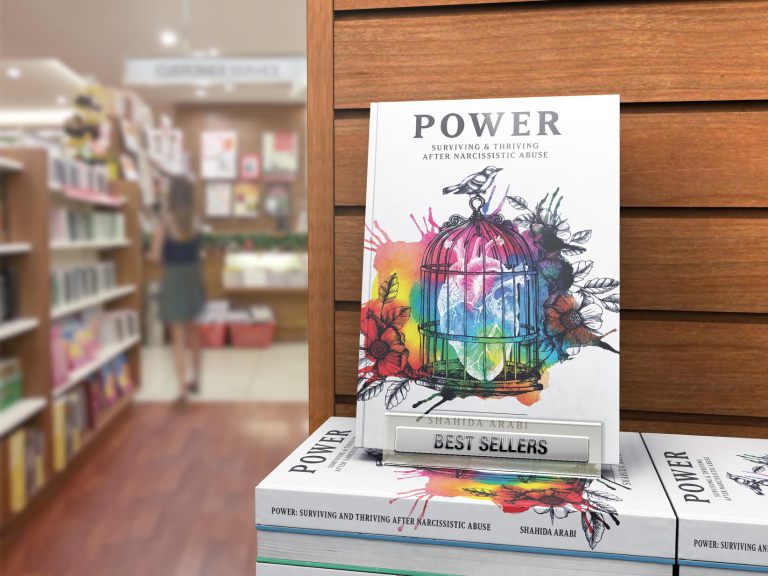1. Remove the clutter from your life.
This includes physical, emotional, and interpersonal clutter which only serves to detract you from focusing on your personal growth. Self-care and self-love require the space and energy to expand yourself, improve yourself, and to reach higher levels of spiritual and psychological well-being. You can’t achieve this by allowing unnecessary excess in your life.
Clean the physical spaces where you live, because physical clutter can affect your mindset every day. An organized, tidy living space can do wonders for your mood and help you to complete tasks more quickly because everything has its place. Cut the toxic interactions with people you don’t need in your life which are only bringing you down. Stop allowing negative people to take up the space in your mind, heart and soul — they don’t belong there and the ruminations you’re engaging in over them are virtually useless. Refine your to-do list — stop trying to do a million things every day and instead, prioritize the main tasks which are most important to you and closest to what you value in life.
Remember, quality beats quantity when it comes to self-care, so invest only in relationships and friendships that make you happier, pursue only the goals that are true to your deepest desires, and save your energy and talent for those worthy of you.
2. Give yourself unconditional love every day, no matter what.
Unfortunately, no one can really give this to you except yourself. Human beings, while capable of extraordinary love and compassion for others, still love others conditionally. When I say unconditional love, I truly mean unconditional, unlimited, infinite love. It may seem impossible to achieve, but do the best you can to love yourself regardless of whatever circumstances you may have in your career, relationships, status, power, finances, and so forth.
I highly recommend reading the book Love Yourself Like Your Life Depends On It by Kamal Ravikant to understand how to enter into a mindset of self-love with a simple mantra. Loving yourself unconditionally also means loving all of you — your flaws, your strengths, your secrets, your weaknesses. Every part of you is important, unique, and worthy of love. When you give yourself unconditional love, you find yourself recognizing people who don’t give you the full acceptance you deserve, which makes it easier to clean out the interpersonal clutter as mentioned above.
3. Take care, holistically.
Creating a balance between work and play is essential to maintaining holistic self-care. Don’t focus just on one aspect of your life when it comes to self-care. Energize your body, nourish your spirit, and enlighten your mind. Meditation is important for your spiritual, emotional, and mental well-being. Yoga, Pilates, dance cardio, and running are great ways to get into shape and improve your mood. Eating mindfully will also help you to achieve optimal levels of energy and fitness while making your body less vulnerable to disease.
Writing, reading, and taking classes that interest you will keep your mind sharp, alert, and always learning. Don’t forget to maintain an active social life in the form of healthy relationships and friendships, as these are essential psychosocial resources that will serve as a crucial source of support and enhance your enjoyment of life.
4. Have high standards and stick to them.
Self-respect is crucial to self-care because it protects you from settling for less when you deserve the best. This is toxic to how you view yourself and how you allow others to treat you, your values and your boundaries. If you allow others to trample over your expectations constantly, you’re debasing your worth and chopping away at your self-esteem.
You might be afraid that if you have high standards for yourself, people might perceive you as a high-maintenance person and even abandon you in the process. Let them. It doesn’t matter — in fact, it’s probably a good thing that they do abandon you and reveal their true colors. At the end of the day, your opinion of yourself and what you deserve is all that truly matters in life.
Having high standards in your career and relationships protect you in the long-run from scammers, emotional predators, and exploiters from sucking you dry and leaving you drained. Think of things that fall below your standards as a bad business deal. You’re not getting what you need and want out of it, but the person on the other side is. It’s not worth the investment if someone else is benefiting from the positive return.
5. Pursue your true passions.
Life is too short to waste your energy by allocating resources into goals that are not truly your own. Caring for ourselves means remaining authentic and recognizing our true passions. Don’t be pressured into picking a certain career path just because society says it’s the right one for you; don’t always settle for crappy jobs just because they’ll pay the rent; don’t pursue a major just because of its financial rewards unless it’s something that really interests you.
Sometimes you will have to make do with what you have in order to survive, but be sure you’re still looking for ways to improve yourself and progress to something better and something that represents your true calling. For example, if you’re a waiter who dreams of writing the next big screenplay, continue working on it when you have the time. Setting aside time to pursue your dreams is important because these are things no one can take away from you. You own the right to all of your dreams and the ability to make them come to life.
The key is to still be practical, but also to be passionate. You were not meant to live this life doing just what is required to survive; you were meant to live life chasing your dreams. Don’t be afraid of failure, because failure is a learning experience that will strengthen you and prepare you to do better in the future.
Would you rather sit around and live in the regret of not knowing what would’ve happened if you had tried, or would you rather lead an exciting life by taking on risks and challenges that will ultimately lead you to what you were meant to do?
It’s okay to explore multiple interests and talents; you don’t have to limit yourself to one pursuit. However, if you do have that one dream that’s been pulling at your heartstrings, start chasing it now. If you want to write a book, start by writing a blog or start writing the chapters to the book. If you want to go back to school, start looking up different programs.
Take small steps today to start paving the path to tomorrow. Achieving long-term goals and big dreams are possible so long as you put the effort into making them happen. The most successful people I know are not just passive dreamers; they are active chasers who make an effort every day in order to accomplish their goals.
6. Minimize people-pleasing.
Nobody wins when it comes to people-pleasing, except a person on the receiving end that’s out to exploit you. Our tendency to people-please takes away from our authentic self, drains us of our energy, and deprives us of our ability to take care of ourselves in meaningful ways. By creating falsehoods in our relationships and interactions with others, we detract from who we were meant to be and pigeonhole ourselves into being who we’re not just to please others.
Be confident that who you are and the things you you want, feel, and experience are completely valid. You don’t have to change to gain someone else’s approval; if someone disapproves of you, that’s okay. Rejection is not about your self-worth — it’s about another person’s wants, needs and preferences. Don’t see it as a selfish thing to honor your true self; it’s not selfish, it’s self-care and self-love.
7. Be mindful.
Many of us go through life mindlessly and this detracts from our experience of present joy. This mindlessness is exacerbated by our fast-paced, technologically advanced society. We are so absorbed in social media and the buzz of our phone that we forget to appreciate the everyday, simple pleasures that come our way. The humming of the birds, the color of the sky, the beauty of someone’s smile, the colorful and delicious food in front of us — these are all things we should be mindfully enjoying, and neuroscience research supports that mindfulness can enhance the parts of our brains that contribute to better emotional regulation.
Being attentive, aware and alert to our surroundings and the present moment is vital to experiencing each moment of life more fully and enhancing its joy. So make sure to take at least a couple of hours each day where you release yourself from the distractions of technology and enjoy nature, be engaged with whomever you’re with, and immerse yourself in the conversation you’re having.
If you need help in doing this, start writing in a journal about the various things you observed during the day and how attentive you were to them. It takes practice to be more mindful in everyday life, but it’s a worthy practice since it greatly enhances your experience of life’s everyday moments.
8. Cultivate a lifelong habit of gratitude and abundance mindset.
Being grateful shouldn’t be set aside for the holidays; it should be a way of life. Think of gratitude as another important component of mindfulness and as a lifelong habit that should be practiced every day. It teaches you to be mindful of the things you take for granted every day, from basic things like your ability to see and walk to the bigger accomplishments like having a good job, access to education or a supportive network of friends.
Whether during times of strife or times of bliss, it’s helpful to write in a gratitude journal and take note of all the things you have in your life — remember, these are the same things that other people may be praying for.
9. Give back to the world you live in.
Remember how we talked about your unique talents and goals? This is one of the best incentives for exploring them. You are part of a larger world that needs your help. Whether it’s through volunteering, research, activism, teaching, there are a myriad of ways to give. Find creative and engaging ways to help others whenever possible, whether its sharing resources or investing your time and energy into a cause you care about.
You are here for a purpose and that purpose is tied to benefiting this world in positive ways. As you learn to love and care for yourself better, you’ll also have more positive energy, love and compassion to give to those around you. Embrace your destiny and change the world.
10. Honor and validate your feelings. All of them.
As someone who would qualify as a HSP (highly sensitive person), I know how tough it can be to honor and validate your feelings in a world that’s becoming highly desensitized to emotions and meaningful relationships. However, this last self-care commandment is perhaps the most important one of all. If you can’t honor and validate your own emotions, you’ll allow others to belittle and invalidate them, which means you’re permit toxic people to enter your life without thinking twice.
You’ll make yourself vulnerable to gaslighting, manipulation, coercion, and abuse. You’ll settle for less because you believe that your feelings don’t matter. Guess what? They do. You have to live with your emotions every day. That’s why it is so vital that you learn to honor them.
Validate every emotion you have, even if you think it’s inappropriate or “wrong” somehow. Emotions aren’t meant to be rational, by the way. They are meant to be signals that provide information about situations you’re experiencing or thoughts that you’re having. Honoring and validating your emotions means telling yourself, “It’s okay that I have these feelings. It’s valid that I have them. These emotions are telling me something about this experience. Now I have a choice on how to react to them.”
You don’t have to make your decisions based on your emotions alone, but you should consider them in the decision-making process when it comes to relationships, friendships and personal goals. Honor your feelings and you’ll honor yourself. | For more work like this, check out my book on manifesting self-love and abundance, Powerful Alchemy.








